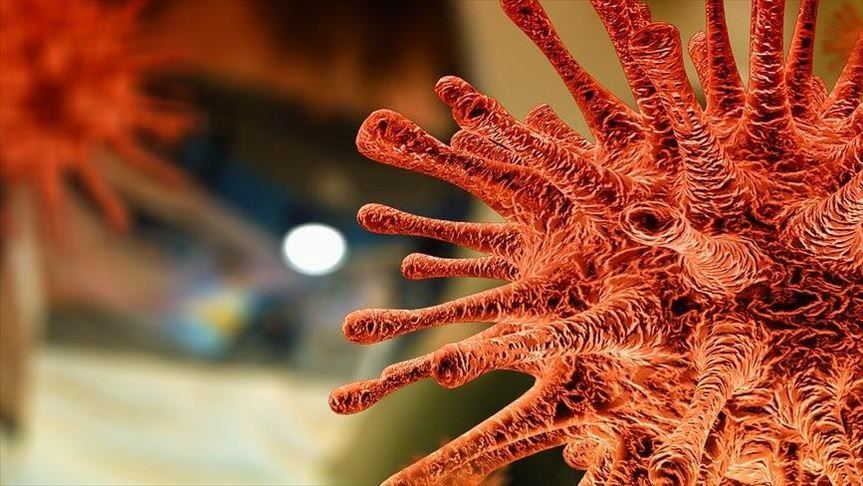OPINION – What kind of world will emerge post-COVID-19?
This is actually the first time since 1945 that the West has come to share only some of the hardships that the inhabitants of the rest of the world take for granted on a daily basis.

The writer is the Director of the Srebrenica Memorial Center. A part-time lecturer at the International Relations Department of the International University of Sarajevo (IUS), Dr. Suljagić is also the author of two books: “Ethnic Cleansing: Politics, Policy, Violence - Serb Ethnic Cleansing Campaign in former Yugoslavia” and “Postcards from the Grave”
SREBRENICA
The COVID-19 pandemic is a genuine crisis, potentially a calamity, and as a result, the entire world looks as though it is at war. Some freedoms have been, or are about to be curtailed, with many countries fearing the impact the pandemic could have on their democratic processes. Time and again, we all turn to one entity in times of crisis, regardless of where we stand ideologically: the state. Governments are expected to do their job and Europeans at the very least seem to take it for granted that the Leviathan --so often and so intensively criticized-- will step in and ward off disaster.
The state alone has the power to decide where your body should be, to borrow from Timothy Snyder. Whereas most are prone to blame mass violence on the state, it is in fact the absence of it that so often precipitates massive loss of human life.
Quarantines have been imposed, trade has been restricted, and activities and public gatherings have been curtailed. In a number of cases, police and military forces would be called in, emergencies declared, food exports banned, border crossings closed, and non-citizens turned away from the border. Coercive capacities of the state in Europe are on display in a way they have not been since the end of the Cold War. Once this crisis is over, if not already, business worldwide is going to ask the state for another bailout. The effect of the pandemic on the global economy will be crippling.
Paradoxically, small, poor, more sparsely populated and thus more isolated countries will be hit less hard by the epidemic and will perhaps fare better. The only dilemma is whether the states in question, for the most part fragile and flawed, will be able to respond in an adequate and appropriate manner. Whatever world emerges after the pandemic has gone, it will be a bigger place, economies will be shrunk, global trade seriously constrained, markets will be lost, and we will probably be witnessing attempts by both governments and business to onshore production and to secure the supply chain, as the London School of Economics and Political Science (LSE) Professor Branko Milanovic, a leading scholar on income inequality, recently pointed out.
But, let us put some of the figures in perspective:
More Bosniaks were killed in eastern Bosnia alone by the Serbs between 1992 and 1995 than the number of victims claimed by COVID-19 so far. Far more people were killed by the genocidal regime of Bashar al-Assad in Syria over the last nine years. Yet, the world did not stop for them. This is actually the first time since 1945 that the West has come to share only some of the hardships that the inhabitants of the rest of the world take for granted on a daily basis, usually as a result of Western policies, some of them dating back to the period before the Second World War.
At the same time, even as the pandemic is ravaging Europe, it is still leading its crusade against Syrian refugees with the Greek Navy shooting at the dinghy boats or removing them by force from its territorial waters. Most, if not all, EU capitals cheer on, enabling the Greek authorities to act as “the bulwark of Christianity”. However, while you may cordon yourself off from the huddled masses of Syrian refugees, as Europe is doing now, you cannot get away without paying the price for the global economic order that has been created specifically for your benefit. If you do not want to share in even the slightest discomfort, you have to start sharing your prosperity and security.
The world that will emerge from under the global siege we are witnessing, will be one of uncertainty and anxiety, a world in which you do not get to make even the most basic decisions, such as where you can stay or how you can spend your time. It is a world large numbers of people across the planet have inhabited for decades, perhaps even longer. What a great many commentators seem to miss is how little has actually changed for so many in the world with the COVID-19 pandemic... Furthermore, it seems that most measures taken by the governments in the West, next to containing the epidemic, are aimed at preserving their relative position in the global market post-COVID-19. That not only demonstrates a serious failure of imagination, but also the kind of short-term blindness that has led to such woeful unpreparedness to stem the epidemic in the first place. The interconnected globalized economy is now truly a two-way street for the first time.
* Opinions expressed in this article are the author’s own and do not necessarily reflect the editorial policy of Anadolu Agency. Anadolu Agency website contains only a portion of the news stories offered to subscribers in the AA News Broadcasting System (HAS), and in summarized form. Please contact us for subscription options.


